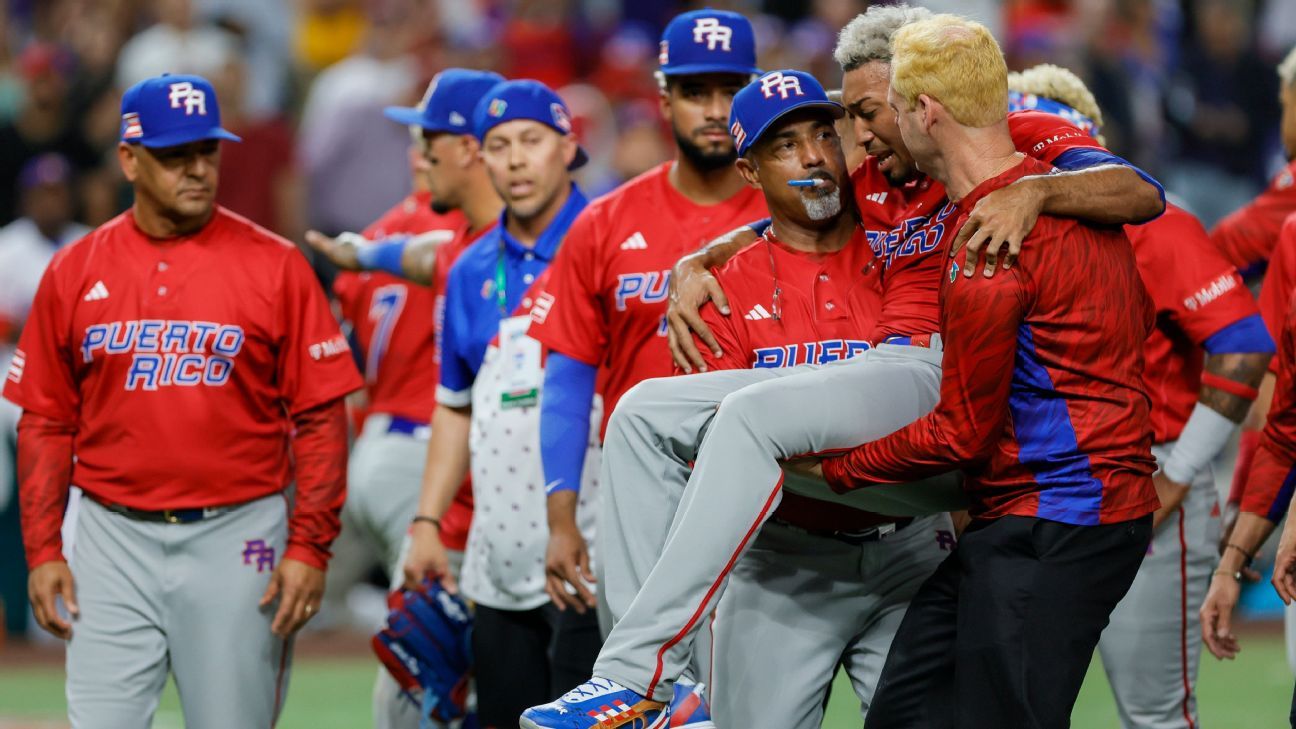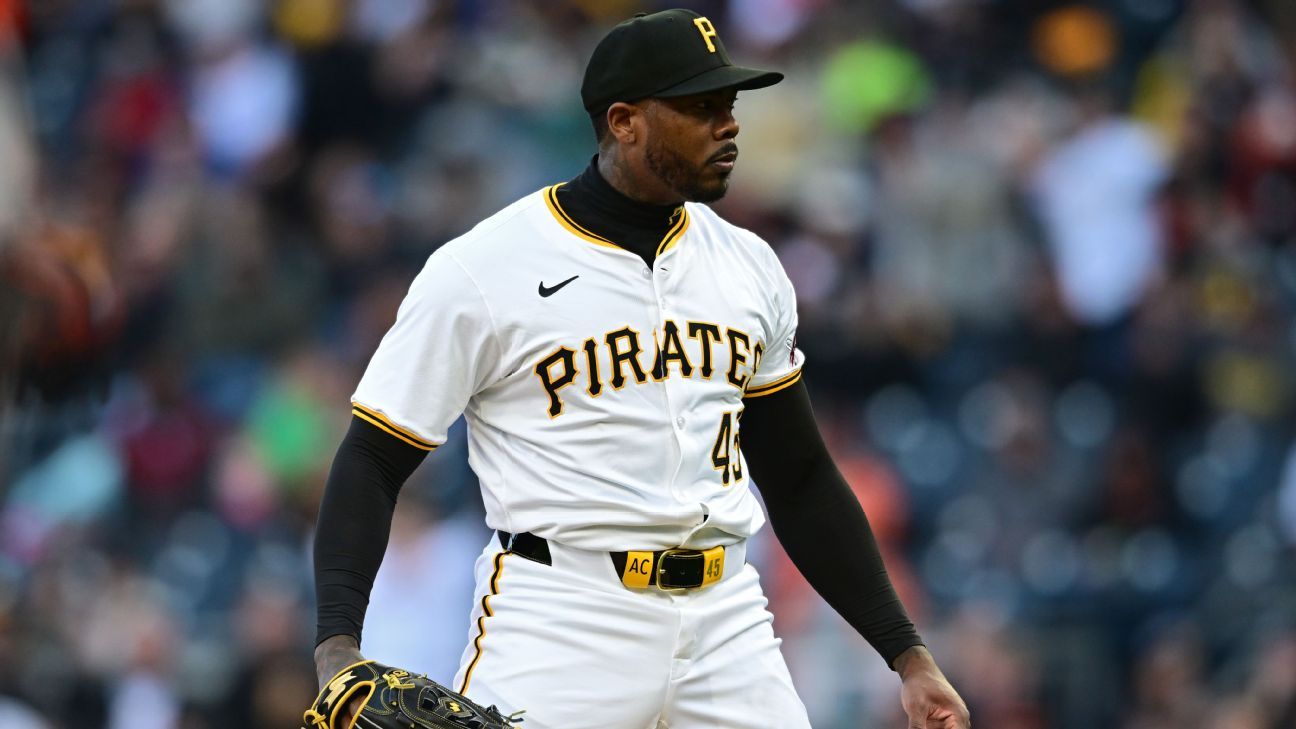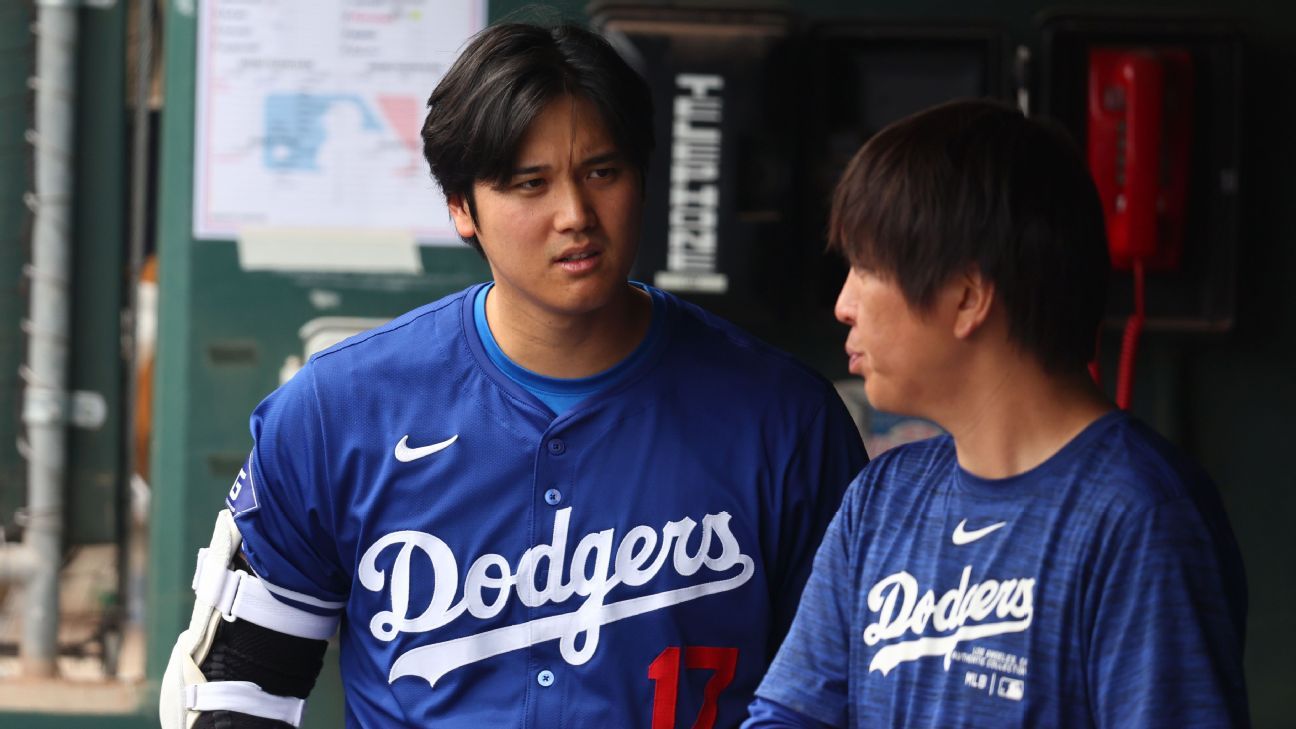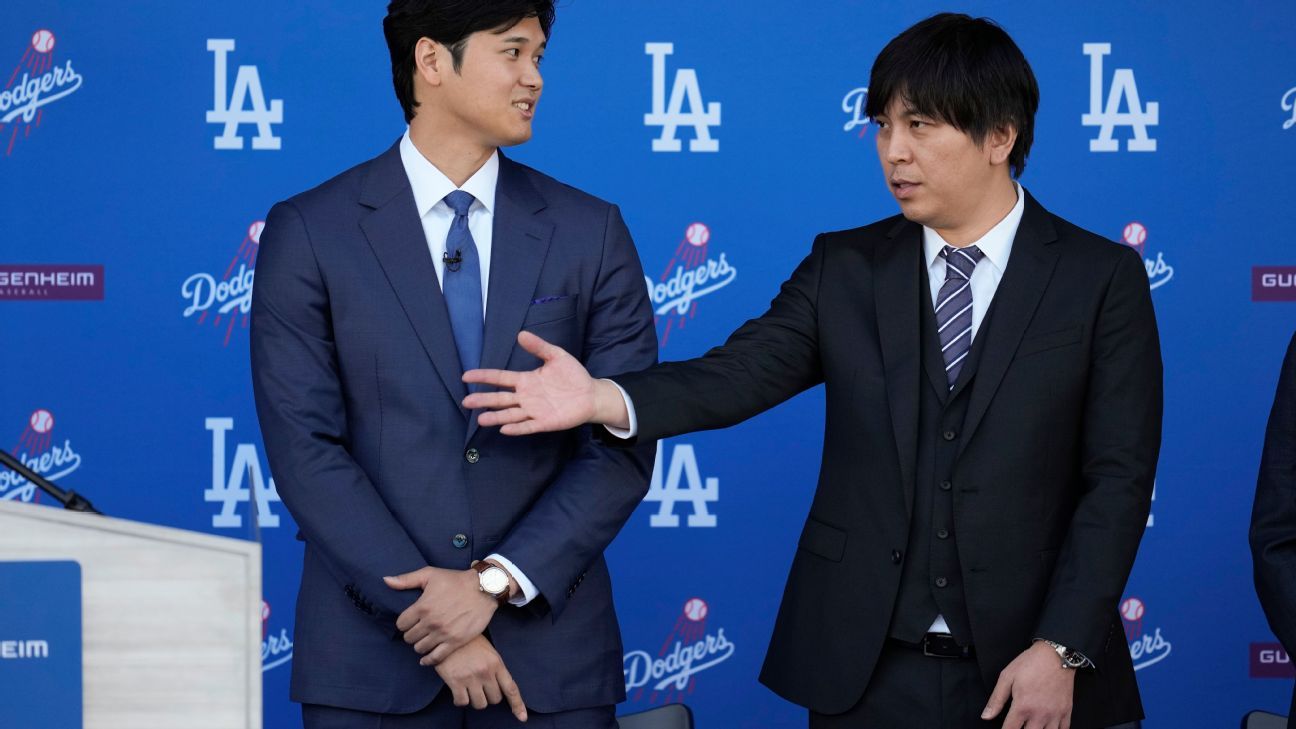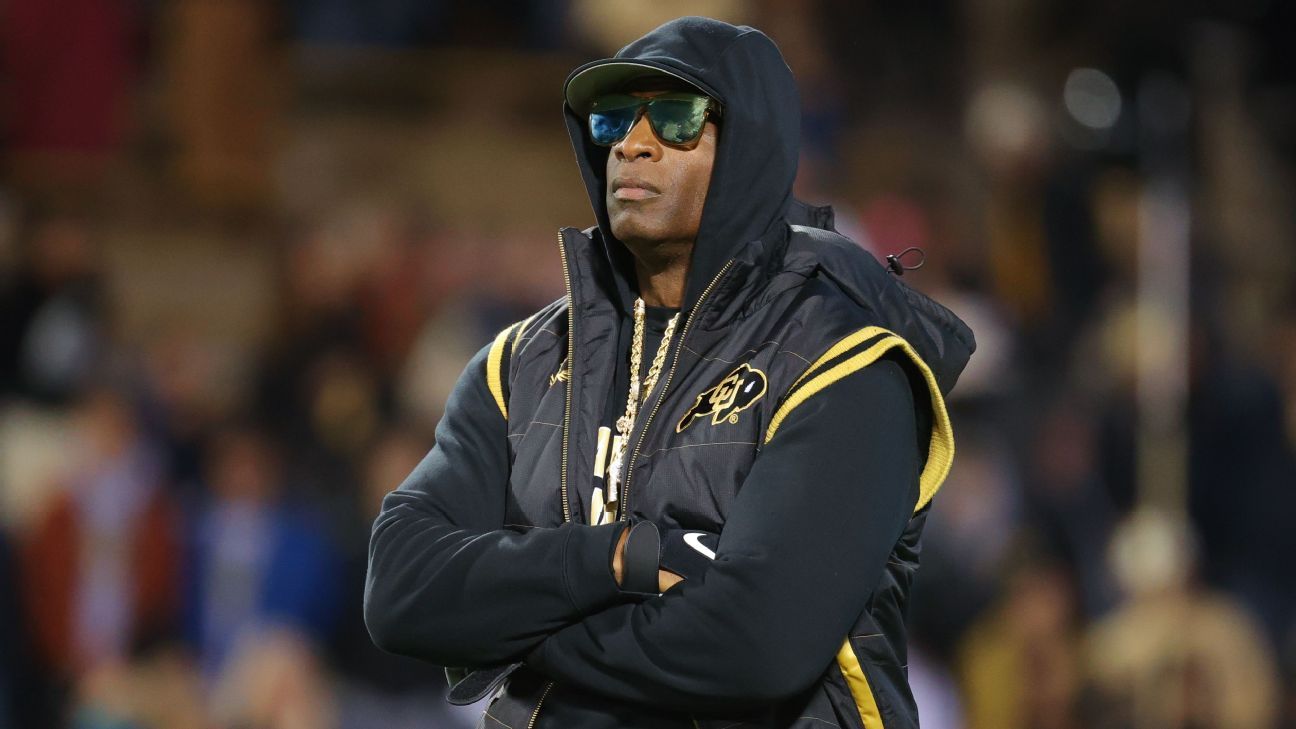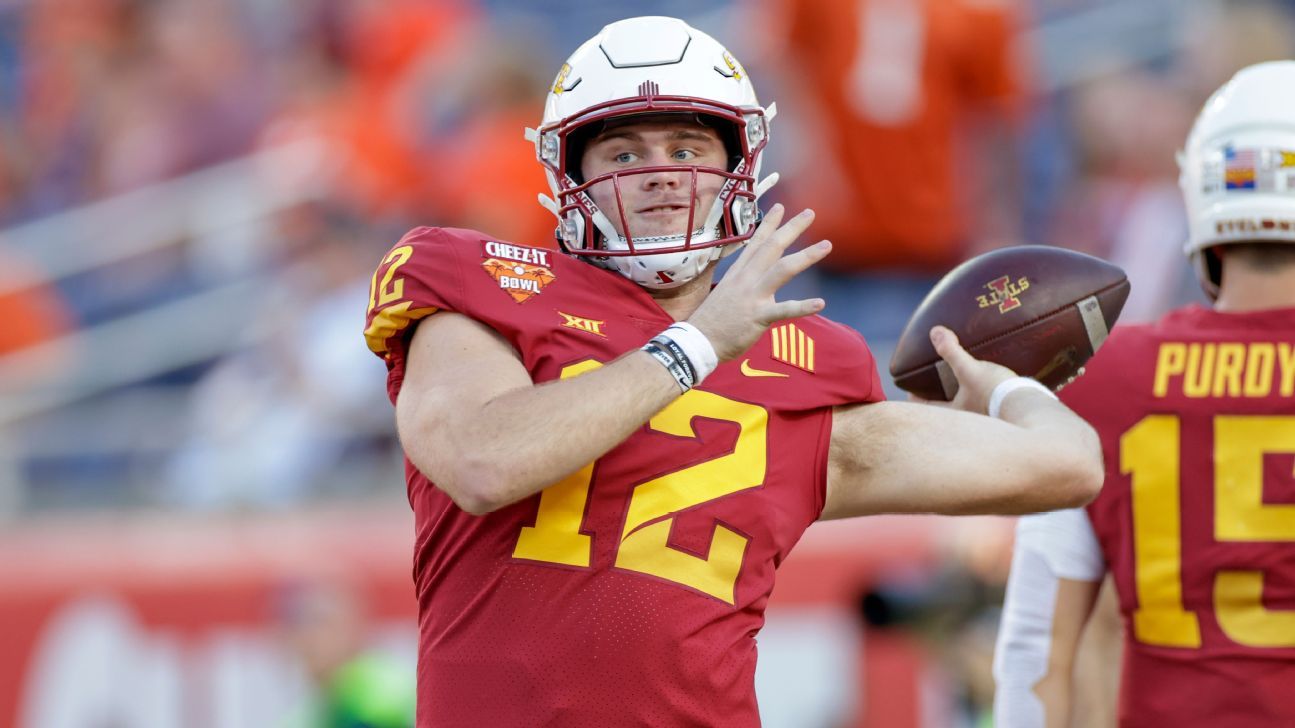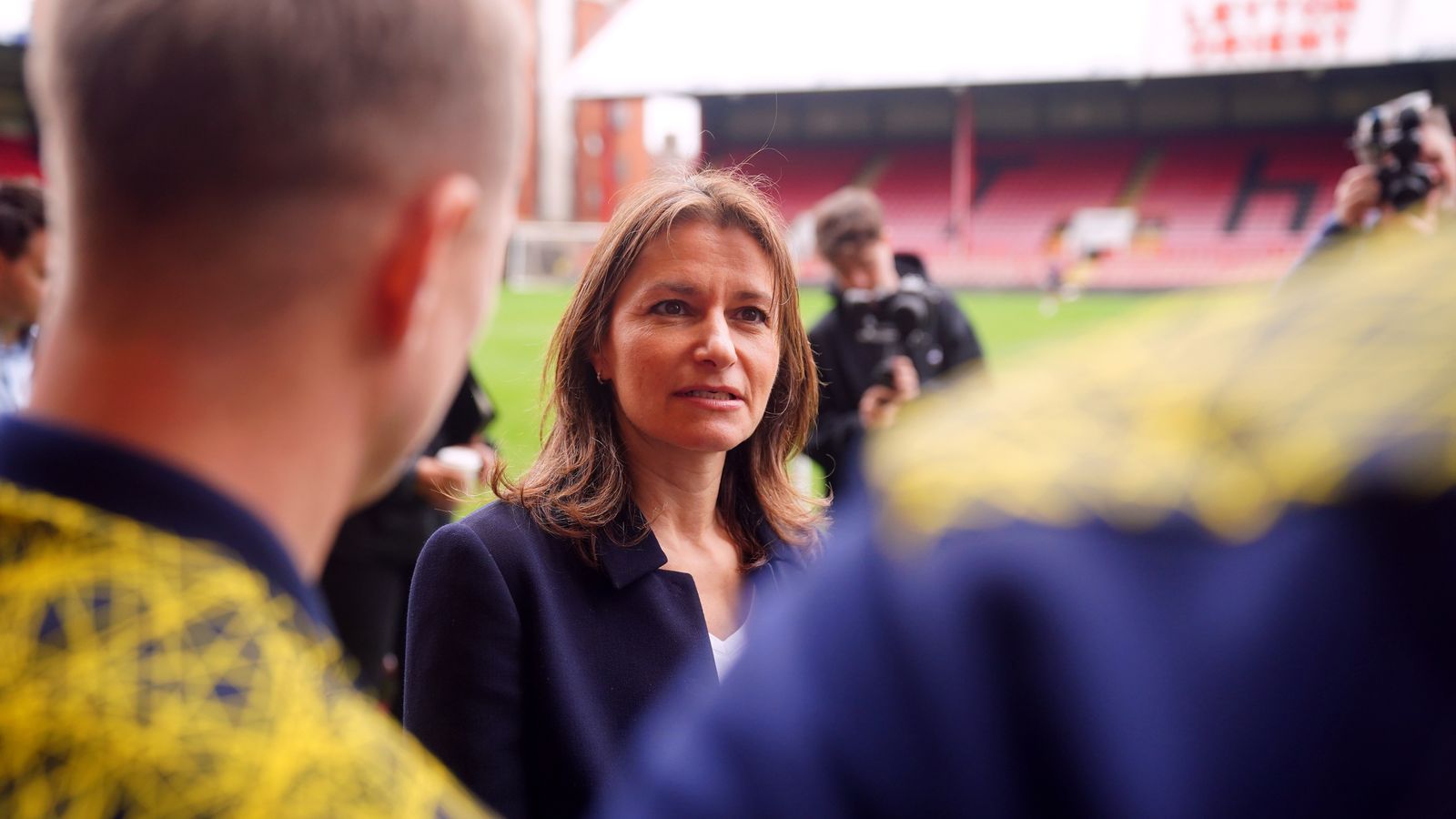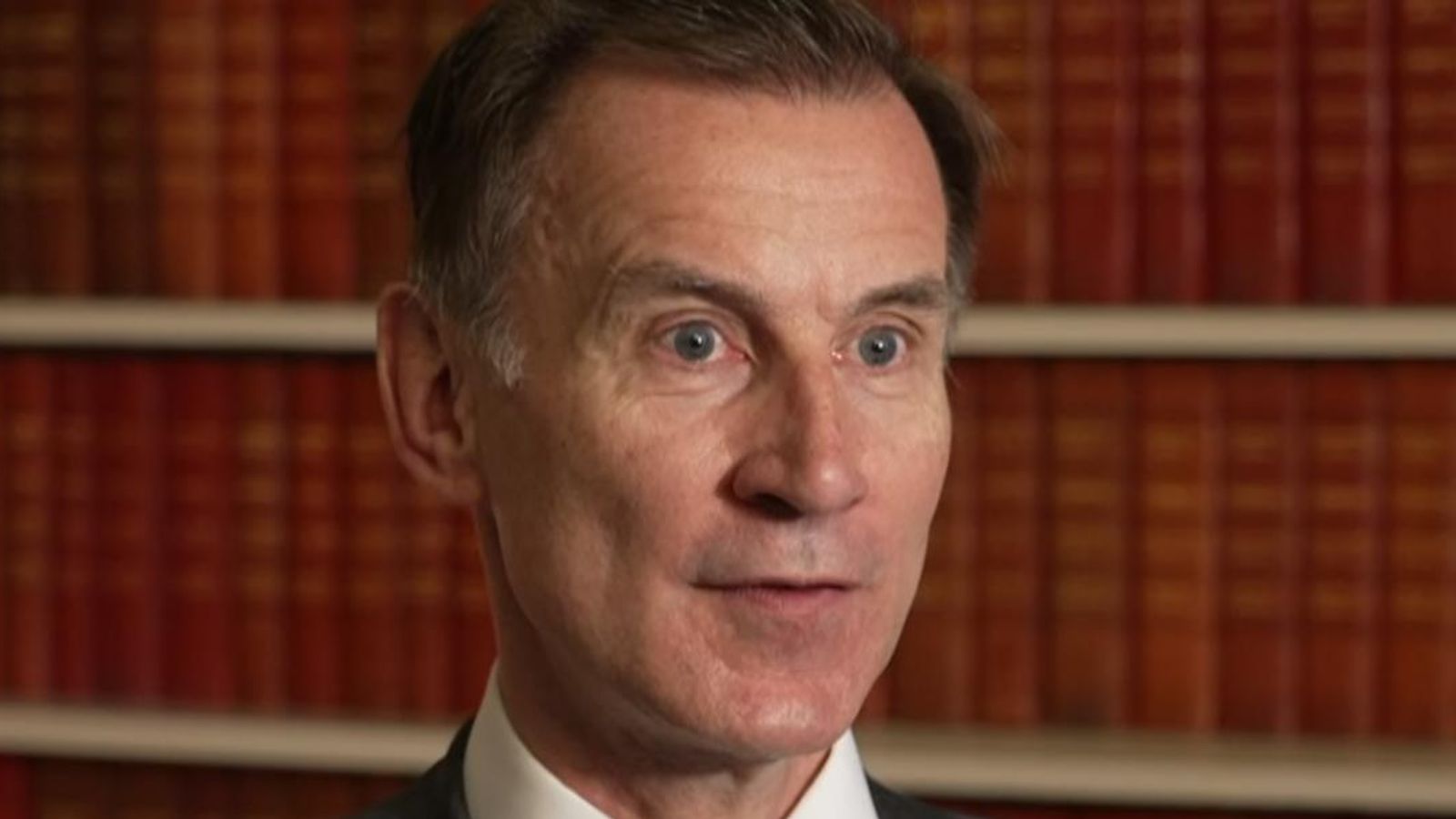
MIAMI — Star New York Mets closer Edwin Díaz suffered a right knee injury Wednesday night during the on-field celebration of Puerto Rico’s victory over the Dominican Republic in the World Baseball Classic, turning a celebratory moment somber as he awaits imaging Thursday to determine the severity of the damage.
After Díaz struck out Teoscar Hernández to seal a 5-2 win that knocked out the tournament favorite, he was hugged by his brother, Cincinnati Reds reliever Alexis Díaz, and eventually encircled by reveling teammates. The players began jumping together but stopped when Díaz collapsed in the middle of the group.
As Díaz writhed on the ground, his brother and other players for Puerto Rico, runners-up in the last two WBCs, were moved to tears. Díaz was helped off the field, struggling to put weight on his right leg, and was later wheeled off to receive medical attention.
Díaz will undergo an MRI on Thursday to further assess the injury. Multiple sources told ESPN they feared the injury could keep Díaz out for a significant period, though they hesitated to place a timetable on it until they see the results of further tests beyond the X-rays taken at the stadium.
Díaz, 28, is regarded as the best closer in baseball, with a fastball that regularly hits 100 mph and perhaps the game’s best slider. Last year, he struck out 118 batters and walked just 18 over 62 innings, posting a 1.31 ERA and helping lead the Mets to a 101-win season. Before he hit the free-agent market, Díaz re-signed with the Mets for five years and $102 million, a record for a reliever.
The loss of Díaz for any period of time hampers the Mets’ efforts to win their first World Series since 1986 and, in the shorter term, dampens the joy from Puerto Rico’s victory against its rivals in what was a win-or-go-home game. Díaz, who had told ESPN earlier in the week that the game against the D.R. “will be like Game 7 of the World Series,” struck out the side in the ninth inning on 21 pitches, sending the sold-out crowd of 36,025 at LoanDepot Park into a frenzy.
Then came the moment that left Puerto Rico’s players reeling.
“I didn’t see it right away,” manager Yadier Molina said. “I was hugging our coaches in the dugout, and when we looked up, Edwin was on the ground. I didn’t know. I didn’t know how to act, I didn’t know what to say. It caught me by surprise. It sucks. When you see a guy that works so hard like Edwin — when you see him on the ground like that, it’s just sad.”
Said center fielder Enrique Hernández, who, after celebrating in the outfield, realized a player was hurt: “It wasn’t pretty much until we got to the infield dirt that we realized something had gone wrong. At the moment we didn’t know who it was. When we got there, that’s when we realized who it was. Obviously, aside from being the best closer in the game right now, and being a huge part of this team, Sugar is one of the glue guys in that clubhouse.”
Díaz, along with Javier Báez and José Berríos, had arranged a team dinner Tuesday night, the day before a game with enormous implications in Latin American baseball.
The Dominican Republic arrived in Miami as the superteam to beat, with a star-studded lineup, ace-filled rotation and devastating bullpen. After the D.R. and Puerto Rico lost to Venezuela, they barreled toward the final game of Pool D against one another, with the winner advancing to a quarterfinal game against Pool C winner Mexico on Saturday.
“It comes to a certain point that it gets bigger than a game. Something very unfortunate happened. As excited as we were about the game and all that, that’s one of our brothers. Some of us grew up together and all that. It’s real easy to set aside the game and worry about us as humans. It definitely doesn’t feel in there like we just beat the Dominican Republic to advance.”
Enrique Hernández
With vuvuzelas tooting and flags flying and one fan holstering a plantain in the waistband of his jeans, an homage to the plátano power that led the D.R. over Puerto Rico in the 2013 WBC final, revenge was exacted. A four-run third-inning burst from Puerto Rico waylaid a D.R. team whose lineup included Juan Soto, Julio Rodríguez, Manny Machado and Rafael Devers — a group that simply never found its groove in the tournament.
Puerto Rico, whose players and staff dye their hair blonde before every WBC, found the best of itself, as it had in 2006 and ’17, when it beat the D.R. — the latter of which Díaz closed. Led by Molina, the 10-time All-Star who in the last WBC caught for the team that lost in the final to the United States, Puerto Rico rode five consecutive hits to start the third and never looked back.
Christian Vázquez led off with a home run off D.R. starter Johnny Cueto. Vimael Machin slapped a single to left, Martin Maldonado dropped a bunt single, Francisco Lindor drove in Machin with a single to left and Hernández plated Maldonado with a Baltimore chop single over Machado’s head. An RBI groundout from M.J. Melendez staked Puerto Rico a 4-0 advantage.
Soto cut into it with a titanic shot to start the bottom of the third off Jovani Moran, launching a 92 mph fastball 448 feel to dead center. Puerto Rico answered when Lindor singled up the middle in the fifth and Rodríguez misplayed the ball, which dribbled to the wall and allowed Lindor to book around the bases and extend the lead to 5-1.
The bottom of the fifth presented what wound up as the D.R.’s final opportunity. Against Alexis Díaz, they loaded the bases with a pair of walks and a single. With no outs, Machado stepped in. One swing later, he grounded into a double play. Though a run scored, Díaz escaped the rest of the inning without harm, and Puerto Rico’s bullpen held firm until the ninth inning.
When the bullpen door swung open, out came Edwin Díaz — accompanied by “Narco,” the entrance music for his arrival at Citi Field. With every out, the stadium got louder, and by the end, the noise for Puerto Rico’s victory was deafening.
That soon changed, and by the time Puerto Rico’s players returned to the clubhouse, the sound was almost nonexistent.
“Quiet,” Hernández said. “It comes to a certain point that it gets bigger than a game. Something very unfortunate happened. As excited as we were about the game and all that, that’s one of our brothers. Some of us grew up together and all that. It’s real easy to set aside the game and worry about us as humans. It definitely doesn’t feel in there like we just beat the Dominican Republic to advance.”

